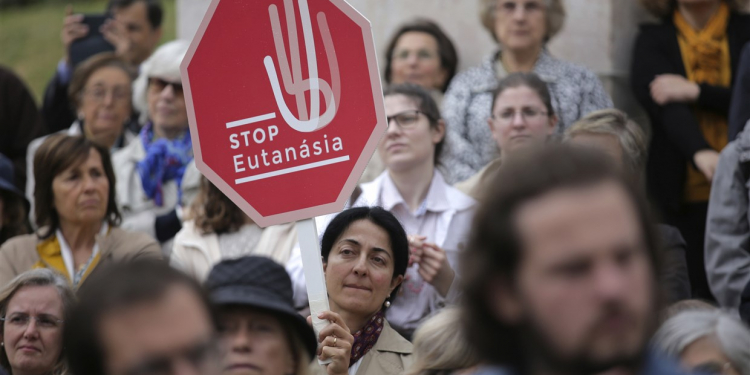The FINANCIAL — Portugal’s parliament voted in favor of allowing euthanasia and physician-assisted suicide for terminally ill people. A debate in parliament by lawmakers ended with the approval of all five bills. Before lawmakers voted, hundreds of people outside parliament building protested the measures.
Portuguese lawmakers voted Thursday to legalize euthanasia and physician-assisted suicide for terminally ill people amid protests outside the parliament building. The vote may add Portugal to the short list of countries that allow such practices, though the country’s conservative president could veto the legislation, sending it back to parliament. In a similar debate two years ago, lawmakers rejected euthanasia by two votes. The country’s governing Socialist Party previously spearheaded efforts to legalize abortion in 2007, according to FOX News.
Telmo Correia, a lawmaker from the conservative Popular Party, described euthanasia as “a sinister step backward for civilization.” He said none of the parties presenting the legalization proposals mentioned euthanasia in their platforms for October’s general election. The process is postponed if it is legally challenged, or if the patient loses consciousness, and health practitioners can refuse to perform the procedure on moral grounds. Oversight is provided by the General-Inspectorate for Health. To discourage people from traveling to Portugal to end their life, the bills all stipulate that patients must either be Portuguese citizens or legal residents. The Socialist-led coalition government in Portugal’s neighbor Spain has also set in motion the legislative steps needed to allow euthanasia, as reported by The Washington Post.
The 230-seat Republican Assembly, Portugal’s parliament, approved five right-to-die bills, each by a comfortable margin. Left-of-center parties introduced the bills, which had no substantial differences. Before lawmakers voted, hundreds of people outside parliament building protested the measures. One banner said, “Euthanasia doesn’t end suffering, it ends life.” Some protesters chanted “Sim a vida!” (“Yes to life!”) and others held up crucifixes and religious effigies. President Marcelo Rebelo de Sousa, who is known to be reluctant about euthanasia, could veto the new law, but parliament can override his veto by voting a second time for approval. The Portuguese president doesn’t have executive powers, The New York Times reported.
The Catholic church in Portugal has led opposition to the procedures, which currently are illegal and carry prison sentences of up to three years. Church leaders have urged lawmakers in vain to hold a referendum on the issue. If the bills become law, two doctors, at least one of them a specialist in the relevant illness, and a psychiatrist would need to sign off on the patient’s request to die. The case would then go to a Verification and Evaluation Committee, which could approve or turn down the procedure, NBC News wrote.
Euthanasia is legal in only three European countries while others allow terminally ill people to refuse life-maintaining treatment or to have help to die. The Netherlands has legalised active and direct euthanasia since April 2002. Requested administration of a drug in lethal doses is authorised if patients make the request while lucid. The Netherlands has also authorised euthanasia for children younger than 12 under strict conditions. Belgium lifted restrictions on euthanasia in September 2002 for patients facing constant, unbearable and untreatable physical or psychological suffering. They must be aged 18 or over and request termination of life in a voluntary, deliberated and repeated manner free from coercion. In Luxembourg, a text legalising euthanasia in certain terminal cases was approved in March 2009. It excludes minors, according to Medical Express.





























Discussion about this post